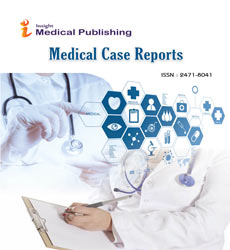Prenatal Diet and Child Autism-Related Traits
David Laurent
Department of Psychiatry, University of Montreal, Montreal, Canada
Published Date: 2023-07-27DOI10.36648/2471-8041.9.7.325
David Laurent*
Department of Psychiatry, University of Montreal, Montreal, Canada
- *Corresponding Author:
- David Laurent
Department of Psychiatry,
University of Montreal, Montreal,
Canada,
E-mail: Laurent-d@umo.ca
Received date: June 23, 2023, Manuscript No. IPMCRS-23-17704; Editor assigned date: June 26, 2023, PreQC No. IPMCRS-23-17704 (PQ); Reviewed date: July 10, 2023, QC No. IPMCRS-23-17704; Revised date: July 17, 2023, Manuscript No. IPMCRS-23-17704 (R); Published date: July 24, 2023, DOI: 10.36648/2471-8041.9.7.325
Citation: Laurent D (2023) Prenatal Diet and Child Autism-Related Traits. Med Case Rep Vol.9 No.7:325.
Description
The relationship between diet and autism-related traits in children is a complex and evolving into topic. Autism Spectrum Disorder (ASD) is a neurodevelopmental condition characterized by a range of symptoms, including difficulties with social interaction, communication challenges, and repetitive behaviors. While research into the potential influence of diet on autismrelated traits is ongoing, it's important to note that there is no definitive "autism diet" that has been universally established as a treatment for ASD. However, some studies have explored the possible connections between certain dietary factors and autism-related traits. The GFCF diet involves eliminating foods that contain gluten (found in wheat, barley, and rye) and casein (found in milk and dairy products).
Some caregivers and families have reported improvements in behaviour and communication in children with autism after adopting a GFCF diet, but scientific evidence for its effectiveness remains limited and mixed. Research has not consistently demonstrated significant benefits of the GFCF diet for all individuals with autism, and some studies have found no difference in outcomes compared to a regular diet. Some individuals with autism may have nutritional deficiencies or sensitivities that can impact their overall health and behaviour. Research has explored the role of certain vitamins (such as vitamin D) and minerals (such as zinc and magnesium) in autism. Supplementation might be recommended if a deficiency is identified, but caution should be exercised to avoid excessive dosages. Omega-3 fatty acids, found in fish oil, have also been studied for their potential cognitive and behavioral benefits in individuals with autism, although results have been inconsistent.
Autism Provision
Next, two very difficult cases, of boys with autism, catatonia, and one of them with mental retardation as well, are presented. The results show the main and really relevant but scarce data concerning primary and secondary catatonia. In the discussion the topics are this dearth in knowledge, the concept of catatonia and its similarities with delirium, and the relation catatonia– autism, and where to find the data. The conclusions summarize the main points and end with a gentle reminder, or is it an appeal? This study aimed to explore maternal experiences about autism services in Saudi Arabia. The main focus of the study was to gather maternal perceptions and needs about current services used for their autistic children in Saudi Arabia. The outcomes from this study will be an important source of information for service providers as parental experiences are considered as a reliable source of information about their children. Data were gathered from seven focus groups with a total of twenty-nine mothers from different geographical areas in Saudi Arabia. Background data about the mothers and their family’ were also collected and considered within the framework. Three master themes were generated; 1) maternal experiences of daily home/school provisions, 2) maternal suggestions to enhance existing services, and 3) maternal suggestions for future services. The findings from study provide with an understanding of Saudi mothers of autistic children’s perception of autism provision services.
Quality of Life
This study provides data from maternal lived experiences about their needs for services, barriers and their suggestions for better services. It also provides a direction for parental and community support which ought to be initiated in Saudi Arabia to provide better family outcomes. Autism Spectrum Disorder (ASD) is a lifelong condition that requires autism-specific services. However, the quality of autism services in Saudi Arabia has rarely been examined. Therefore, exploring issues from the parents' perspective is crucial to improve the Quality of Life (QOL) outcomes for such a population. Semi-structured interviews were administered to nine parents of individuals with ASD, and thematic analysis was used for data analysis. Results showed that parents’ experiences regarding the quality of autism services varied. In addition, the quality of autism services must be further developed to meet the diverse needs of individuals with ASD and their families, in line with the 2030 vision of Saudi Arabia, which prioritizes the QOL of individuals with a disability and their families. This study highlighted some influencing factors of the quality of autism services and QOL of individuals with ASD and their families from the parents’ perspective. This study concluded that further research is necessary to gain in-depth understanding of the influencing factors of the quality of national autism services. Overall, the reasons behind the diversity in experiences amongst parents of individuals with ASD regarding the quality of autism services must be further explored. Participants were drawn from the Early Autism Longitudinal Investigation (EARLI, n=127), a cohort following women with a child with autism through a subsequent pregnancy. Participants were also drawn from the Nurses’ Health Study II (NHSII, n=713), a cohort of US female nurses, for comparison analyses. In both studies, information on prospectively reported prenatal diet was drawn from food frequency questionnaires, and child autism-related traits were measured by the Social Responsiveness Scale (SRS). Bayesian Kernel Machine Regression was used to examine combined effects of several nutrients with neurodevelopmental relevance, including Polyunsaturated Fatty Acids (PUFAs), iron, zinc, vitamin D, folate and other methyl donors, and separately, key food sources of these, in association with child SRS scores in crude and adjusted models. In adjusted analyses, overall mixture effects of nutrients in EARLI and foods in both cohorts on SRS scores were not observed, though there was some suggestion of decreasing SRS scores with increasing overall nutrient mixture in NHSII. No associations were observed with folate within the context of this mixture, but holding other nutrients fixed, n–6 PUFAs were associated with lower SRS scores in NHSII. In both cohorts, lower SRS scores were observed with higher intake of some groupings of vegetables, though for differing types of vegetables across cohorts, and some vegetable groups were associated with higher SRS scores in NHSII. Our work extends prior research and suggests the need to further consider prenatal dietary factors from a combined effects perspective. In addition, findings here point to potential differences in nutrient associations based on family history of autism, which suggests the need to consider gene interactions in future work.

Open Access Journals
- Aquaculture & Veterinary Science
- Chemistry & Chemical Sciences
- Clinical Sciences
- Engineering
- General Science
- Genetics & Molecular Biology
- Health Care & Nursing
- Immunology & Microbiology
- Materials Science
- Mathematics & Physics
- Medical Sciences
- Neurology & Psychiatry
- Oncology & Cancer Science
- Pharmaceutical Sciences
